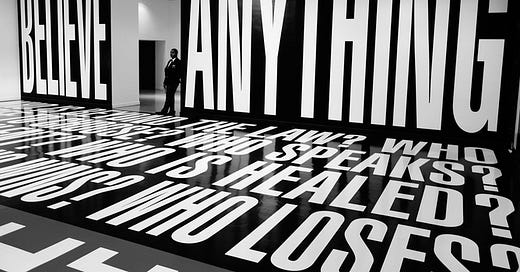I don't need you to tell me what clothes to wear
I don't want suggestions about my hair
If the whole world buys your bullshit I don't care
I'd rather put on something that you won't dare
— Prince: I Rock Therefore I Am
Somebody asked me why Boomers seem to be oblivious of their privilege. The concise answer I gave was that Boomers exploited the systems-that-…
Keep reading with a 7-day free trial
Subscribe to Stoic Observations to keep reading this post and get 7 days of free access to the full post archives.




